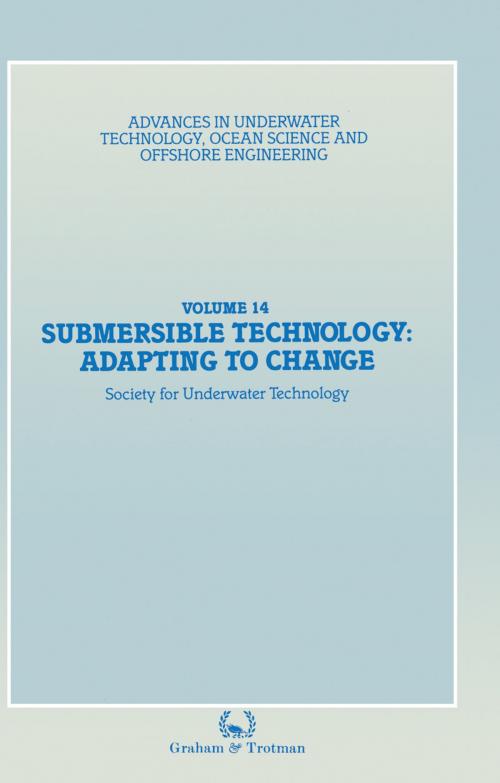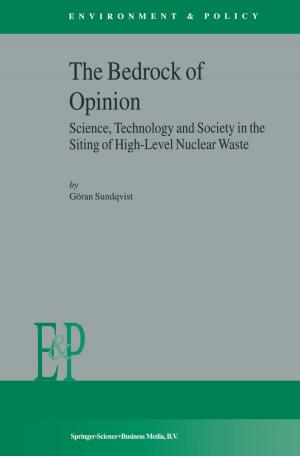Submersible Technology: Adapting to Change
Proceedings of an international conference (’SUBTECH ‘87— Adapting to Change’) organized jointly by the Association of Offshore Diving Contractors and the Society for Underwater Technology, and held Aberdeen, UK, 10–12 November 1987
Nonfiction, Science & Nature, Technology, Hydraulics, Engineering| Author: | Society for Underwater Technology (SUT) | ISBN: | 9789400912991 |
| Publisher: | Springer Netherlands | Publication: | December 6, 2012 |
| Imprint: | Springer | Language: | English |
| Author: | Society for Underwater Technology (SUT) |
| ISBN: | 9789400912991 |
| Publisher: | Springer Netherlands |
| Publication: | December 6, 2012 |
| Imprint: | Springer |
| Language: | English |
To maintain quality in research output, providing the necessary new knowledge for our developing industries must be of prime importance to our community. This is an extremely difficult task when viewed in the context ofthe rapid rate of change being experienced within our national industrial scene. Collaborative research programmes designed to constantly monitor and improve the quality of output, through regular reporting and assessment of achieved goals against defined targets, can help the growth of our industry and benefit the rest of society. The government has established initiatives to encourage collaboration and the transfer of technology between the research and development domains. There are many signs that industry and the universities are making a concerted effort to adapt their working practices and relationships to meet the rapidly changing industrial environment. There are still many shortfalls and areas for improvement. Some of the extremes of government educational policy can, and will, seriously impair the evolution of, and benefits gained from, the collabo ration initiatives. These must be resisted by academe and industry alike if we are to make new advances against foreign competition. Joint R. and D. projects do work, and can be made to work. To achieve the steady growth of healthy and fruitful relationships they must, however, be given a good environment and a nourishing diet. REFERENCES 1. Alvey Programme Annual Report(s), Alvey Directorate, Millbank Tower, Millbank, London, SW1P 4QU. 2. Annual Review o{ Government Funded R. & D. (1985). (From the Cabinet Office), Her Majesty's Stationery Office.
To maintain quality in research output, providing the necessary new knowledge for our developing industries must be of prime importance to our community. This is an extremely difficult task when viewed in the context ofthe rapid rate of change being experienced within our national industrial scene. Collaborative research programmes designed to constantly monitor and improve the quality of output, through regular reporting and assessment of achieved goals against defined targets, can help the growth of our industry and benefit the rest of society. The government has established initiatives to encourage collaboration and the transfer of technology between the research and development domains. There are many signs that industry and the universities are making a concerted effort to adapt their working practices and relationships to meet the rapidly changing industrial environment. There are still many shortfalls and areas for improvement. Some of the extremes of government educational policy can, and will, seriously impair the evolution of, and benefits gained from, the collabo ration initiatives. These must be resisted by academe and industry alike if we are to make new advances against foreign competition. Joint R. and D. projects do work, and can be made to work. To achieve the steady growth of healthy and fruitful relationships they must, however, be given a good environment and a nourishing diet. REFERENCES 1. Alvey Programme Annual Report(s), Alvey Directorate, Millbank Tower, Millbank, London, SW1P 4QU. 2. Annual Review o{ Government Funded R. & D. (1985). (From the Cabinet Office), Her Majesty's Stationery Office.















